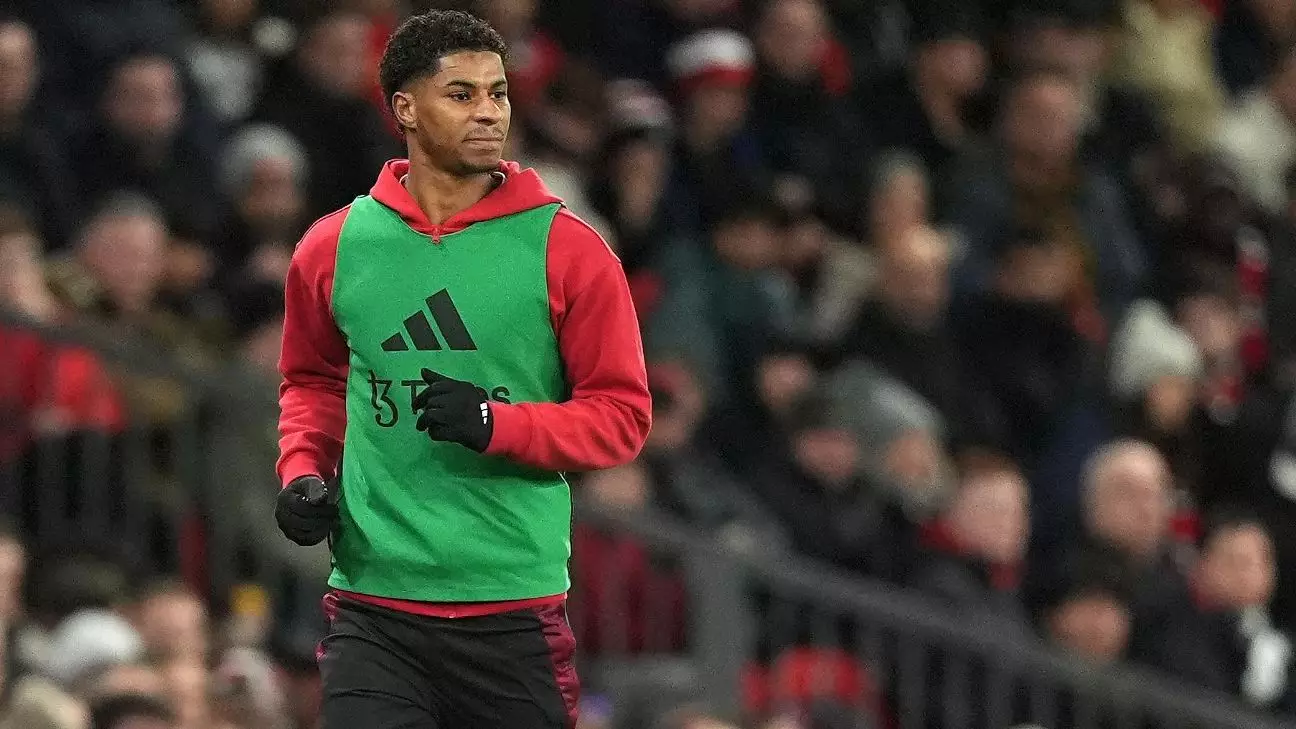The world of football often acts as a stage where drama, tension, and personal conflict unfold, especially when it comes to player-coach relationships. A recent development has highlighted this theme: the loan transfer of Marcus Rashford from Manchester United to Aston Villa during the tenure of coach Ruben Amorim. This article will examine the implications of this decision and explore the broader theme of compatibility in team dynamics.
Ruben Amorim, the head coach at Manchester United, articulated a pivotal challenge he faced with Marcus Rashford—namely, the inability to instill his football philosophy in the talented forward. Amorim’s comments reveal insights into the intricate dynamics that govern relationships within a team. When a player is unable to align with the manager’s vision, the consequences can ripple through the entire squad. Amorim openly acknowledged that his differing expectations for training and gameplay led to Rashford’s eventual loan spell at Aston Villa. This decision is multifaceted; it signifies not just a tactical shift but also suggests deeper undercurrents of communication breakdown.
The idea that a player can thrive under one coach’s methodology yet struggle under another is not uncommon in sports. Rashford, who has shown moments of brilliance in the past, appears to have reached an impasse with Amorim that deemed him less adaptable to the latter’s strategies. This situation serves to remind fans and analysts alike that player performance is often more complex than mere stats or skills. The challenges encountered by Rashford and Amorim underscore the critical importance of mutual understanding and compatibility in football.
The Coach’s Perspective
Amorim’s reflections suggest a level of introspection regarding his coaching methods. It is telling when he states, “What I say is I couldn’t put Marcus to see the way you’re supposed to play football.” This admission indicates a conscious awareness of the various learning styles players may possess and the necessity for coaches to adapt their methods accordingly. The situation becomes more nuanced when considering the emotional aspects involved; a coach’s inability to connect can lead to frustration for both parties.
Furthermore, Amorim’s acknowledgment that “some of the guys don’t adapt the way I see football” emphasizes a critical reality in team sports: adaptability is essential. In a setting where synergy among players and coaches is crucial for success, the inability to forge an effective communication channel can hinder performance and development. The public acknowledgment of such a situation highlights the delicate nature of team dynamics and the impact of individual player needs on overall team functionality.
As Amorim prepares his squad for the upcoming FA Cup tie against Leicester City, it also presents an opportunity to reflect on how coaching and team composition can evolve post-departure of key players. The fact that Amorim insists on a clean break showcases a commitment to building his own style and ethos, regardless of the historical figures present in the club, such as Ruud van Nistelrooy.
This determination offers meaningful lessons on leadership. Amorim recognizes that maintaining structural integrity within the coaching staff is essential for achieving long-term vision and goals. He declared, “I will not put Ruud… in the end of the hierarchy in the staff,” revealing a respect for both the legacy of past players and the necessity of a coherent leadership structure. The manager’s insistence on loyalty to his strategies over populist choices advocates for the idea that success arises from understanding the importance of unified vision.
The Road Ahead
As Marcus Rashford embarks on his loan period at Aston Villa under Unai Emery, the future of both the player and coach remains uncertain yet filled with potential. This case encapsulates a moment of reflection for players and managers alike about fit, expectations, and the values that govern a successful team. If Rashford can find a renewed sense of purpose and connection with Emery, the outcomes could be significantly positive, paving the way for both individual and collective growth.
The narrative of Rashford’s departure highlights fundamental concepts about the interaction of player capabilities and coaching philosophies. While moving clubs may appear as a simple transfer, underneath lies a complex web of personal and professional challenges that can shape careers and define legacies in the ever-evolving world of football.

